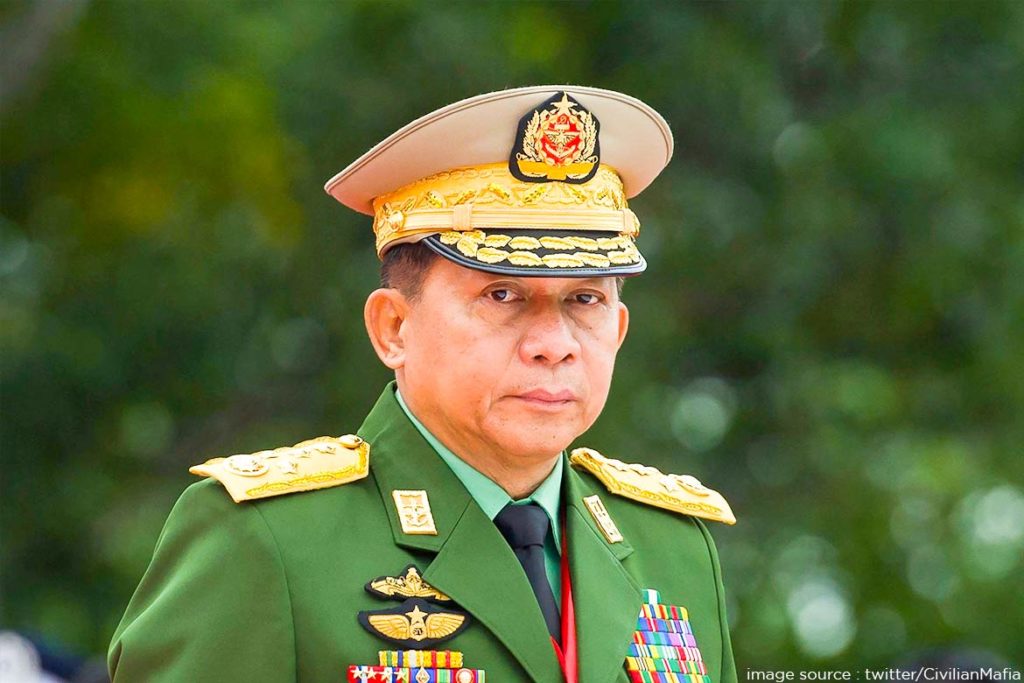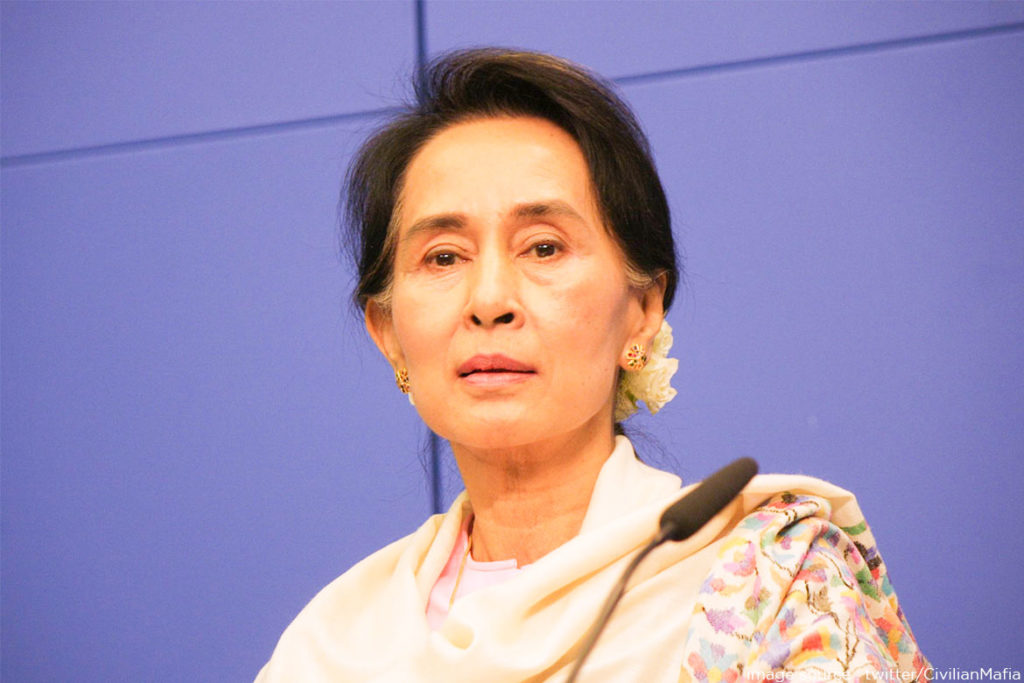The Aung San Suu Kyi led N.L.D’s clean sweep in the 2020 elections was going to be a fresh start for democracy in Myanmar. It ended up being the cause of a Coup. The Tatmadaw i.e Myanmar Army seized power on February 1st in opposition to said victory.
Thus today, we look into this whole charade, claims by multiple parties as well s our own 2 words.
WHATs & WHYs OF THE COUP
On 8th November 2020, Aung San Suu Kyi’s National League for Democracy (N.L.D) won 83% of the available seats in the national election. Said election was the 2nd one since the end of Military rule since 2011. Considering Suu Kyi led the battle against military autocracy, her victory was seen as the people’s mandate.
Opposition however came from the side of the military. It alleged irregularities in said elections and have laid doubts over 9 million votes. Thus, the Tatmadaw filed a voter fraud case in the Supreme Court, alleging electoral malpractices. Their claims further say that there’s a possibility of many people voting “more than once”. The military demanded that the Union Elections Commission (UEC) prove at a special session before the new parliament convenes on February 1, that the elections were free and fair. The demand was however rejected.
The army chief’s statement highlighted the importance of the 2008 Constitution, which was drafted by the army as Myanmar’s “Roadmap to Democracy” (though boycotted by N.L.D)
Each section of the law has a purpose and meaning and no one should take it upon themselves to interpret it as they pleased. Applying the law based on one’s own ideas may cause harm rather than being effective.
Commander-in-Chief Senior General MIN AUNG HLAING

This brings us to February 1st, 2021 when the Tatmadaw declared 1-year State of Emergency in Myanmar, via their own TV channel. Consequently, it detained N.L.D leader Suu Kyi and President Win Myint in the capital Naypyidaw ahead of a scheduled meeting of the country’s newly elected Parliament. Troops even reached the commercial capital Yangon and seized the City Hall. According to party sources, Tatmadaw arrests also took place elsewhere, including the CM of Karen state and other regional ministers.
GROUND LEVEL IMPACTS
As expected, the 1st major consequence of this whole charade was the downing of internet and mobile services. This can be confirmed by a NetBlocks report. It’s an NGO that tracks internet shutdowns and has reported severe disruptions to web connections. In fact, even state broadcaster Myanmar Radio & TV (MRTV) has reported technical difficulties and is currently off-air. This has made contact with the nation difficult.
There’s still no clarity as to whether banks and ATMs will be accessible or not. Thus, people are rushing to withdraw as much as possible, to deal with a potential future cash crunch. Apart from this, international news organizations including BBC report that the state is blocking off international broadcasters as well.
INTERNATIONAL REACTION TO THE COUP
The diplomatic missions of Australia, Canada and the EU congratulated Myanmar for holding it’s second ever general election. Additionally, it’s official statement also hoped for future elections of the President and Speakers. Here’s an excerpt of their statement: –
We urge the military, and all other parties in the country, to adhere to democratic norms, and we oppose any attempt to alter the outcome of the elections or impede Myanmar’s democratic transition. We support all those who work toward greater democratic freedoms, lasting peace, and inclusive prosperity for the people of Myanmar.
Controversy erupted after statements by U.N Secretary-General Antonio Guterres & western embassies in Myanmar. Said statements expressed concern over the army’s takeover, especially over the Army Chief’s statement: –
“if one does not follow the law, such a law must be revoked. I mean if it is the Constitution, it is necessary to revoke the Constitution. If one does not follow the law, the Constitution must be revoked”.
However, the Tatmadaw was quick to allay any concern. Gen. Min Hlaing confirmed that some organisations misinterpreted his remarks and wrote that he’ll abolish the Constitution. On the contrary he said, the army will protect and abide the 2008 Constitution. Suu Kyi however, still wans’t impressed and called this a “suitable explanation”.
Talking about democracy, the world’s oldest and largest democracies were united in condemning the emergency. Both in their own ways, called for Myanmar to accept the people’s mandate. Both called for Myanmar to follow the rule of law and democratic processes.
Futhermore, members of the A.S.E.A.N as well as organisations like The Human Rights Watch & Amnesty International have condemned the arrests and blackout of communications in the nation. In addition, they have also condemned the excessive use of brute force by the Tatmadaw on civilians.
FINAL WORD
Anyone who had any idea about the roller coaster of a journey that is Myanmar’s democratic struggle, would’ve know that seamless transition was not possible. Thus, despite the overwhelming mandate Suu Kyi’s N.L.D got, was not enough to get the democracy up and running.
However, hopes were high from this election’s results as people thought that the rivals were on the same page this time. This was the notion because Suu Kyi time and again, has shown a re-conciliatory attitude towards the army, since the end of her house arrest. She even defended their atrocities against the Rohingyas in the International Court of Justice.

On the other hand, positive signals came from the side of the military as well. Not only did they release her from house arrest, they even termed it a beginning in Myanmar’s “Road Map to Democracy”. Furthermore, it was the Tatmadaw that came up with the 2008 Constitution for power sharing. The problem maybe could’ve stemmed from one of the Constitutional provisions. The military reserves for itself 25 per cent of seats in both Houses of Parliament for its officials. This share fell after N.L.D’s clean sweep in November 2020.
Thus, Myanmar is once again, stuck in a power struggle between the Military and the Civilian Government. The Tatmadaw has promised to abide by the rule of law and ensure the Constitution is not violated, there’s no assurance on the fate of human rights. We may possibly see a case over voter fraud and perhaps even a re-election, but that’s a distant possibility.
All we can say now, is that a peaceful transition of power (to anyone) is what we can expect. However, to what extent will the loopholes in law be misused, is a thing to watch out.
